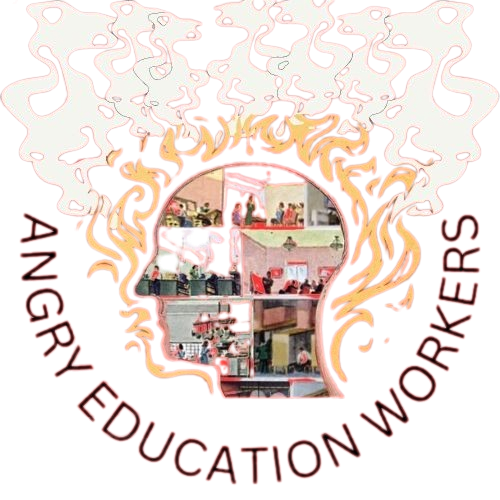Towards a Revolutionary Union Movement, Part 5: Democratic and Inclusive
We need a new type of revolutionary unionism that can confront capitalism. Revolutionary unions must prefigure the future by practicing direct forms of democracy, paired with an inclusive culture.

This is part five in a series on revolutionary unionist strategy and tactics. If you have not read the previous entries, you can start at part one here:
Democracy is the lifeblood of the workers’ movement. Without it, the movement dies, as we have seen with the history of the business unions since the mid-20th century. This is just starting to change with the triumph of democratic reform slates such as Caucuses of Rank-and-File Educators (COREs) in a growing number of teacher union locals, Teamsters for a Democratic Union (TDU), and Unite All Workers for Democracy (UAWD) in the UAW. So far, the results have been stunning and historic victories for the unions who have embraced increased internal democracy and an inclusive organizational culture. Unions who dig in their feet to stick to their conservative strategies continue to shed members and render themselves irrelevant. Revolutionary unions take it further and commit to direct democracy. We reject the slandering of our unions as outside “third parties” by employers, because we are the union!

Directly democratic union structures neutralize the ability of employers and the government to crush unions by singling out individuals within the union for retaliation. Even if they lock up the so-called “leaders” of an illegal strike, others will immediately step up to take their places. These democratic practices spread the burden of illegal strikes, workplace occupations, and sabotage across a greater number of people, both within the affected workplaces and the union as a whole.
Besides internal governance structures, a revolutionary union movement forges an inclusive, accepting organizational culture that seeks to center the needs of the most oppressed and marginalized parts of the proletariat. Revolutionary unions go out of their way to engage in outreach to these fellow workers. A concrete step in the right direction unions can make in the short term is investment in translation resources for migrant workers. Regular rotation of positions ensures that members of all backgrounds have access to leadership development. Key to successfully building an internal organizational culture is the efficient delegation of union tasks. We can’t expect everyone to devote hours of time every week or month to unpaid union work. Break tasks down into small enough parts that any member, especially newer ones, can complete them quickly and easily. Tasks should be categorized so that it’s clear to worker-organizers approximately how much time each type of task will take. That way, individuals can take on the exact number and kind of tasks that they can handle.
Democracy entails internal accountability systems that can process conflict equitably and in just ways that push aside punitive measures as much as possible. These practices must respect the due process of all stakeholders. There are more than enough unions dominated by cliques of self-serving officials. There are enough weirdo left-cults plagued by constant purges, scapegoating, and abusive leaders. The bosses’ control of the relations of production is the bedrock of capitalist exploitation and despotism. To attack our subjugation at its source, we must encode egalitarian principles and ironclad solidarity into the DNA of our fledgling revolutionary union movement at every stage of its development. Then, with every struggle we enter into with the employing class, we must continually transform production to be more egalitarian and free at every opportunity we get (or make) through direct action.
That’s all for this week! Come back next Sunday for part six, which emphasizes the necessity of militant direct action by revolutionary unions.
Who are the Angry Education Workers?
This is a project to gather a community of revolutionary education workers who want a socialist education system. We want to become a platform for educators of all backgrounds and job roles to share workers’ inquiries, stories of collective action, labor strategy, theoretical reflection, and art.
Whether you’re interested in joining the project, or just submitting something you want to get out there, get in touch! All levels of involvement are welcome. Burnout culture is bullshit.
Reach out to angryeducationworkers@protonmail.com or over any of our social media. You can also contact us on the signal by reaching out to proletarianpedagogue.82.
Support Our Work
All of our work is freely available, but if you like what we do and want to support us, please consider throwing a little donation our way! It helps us cover the costs of printing, hosting webpages, and supplies.



